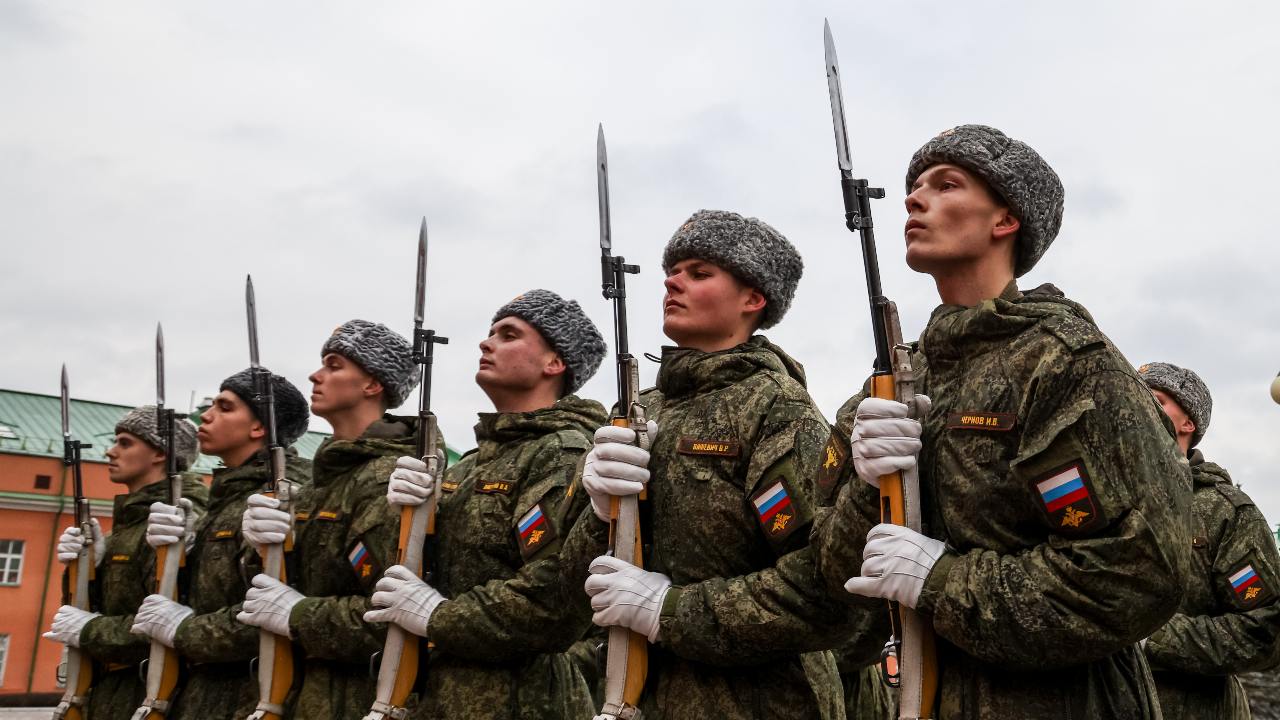Military analysts have already called the president’s decree unrealistic, especially given Russia’s deteriorating demographics. The latest conscript call up, for the first time in several years, fell short of its goals by a third, and a possible increase in the length of conscription service will only strengthen the trend of young men seeking to avoid army service, according to Pavel Luzin, an expert on international relations and security. Putin may decide to transfer part of the paramilitary Russian Guard (Rosgvardiya) to the armed forces, but that would reduce his resources for fighting protesters inside the country.
As for the possibility of sending more conscripts to the war with Ukraine, that is opposed even by military experts loyal to the Kremlin. So too is the suggestion of a general mobilization. The authors of the Military Review website, which is close to the Russian Ministry of Defense, warned that the effect of such a decision would have consequences similar to those faced by the US during the Vietnam War. It was the conscripts returning from the front who often became the most ardent anti-war activists, they wrote, and protests against the war almost led to a social explosion in American society (though the authors could have found a more recent example closer to home — Russia’s disastrous experience during its war in Afghanistan from 1979-89.)
If conscripts are mobilized and sent to the front, anti-war sentiment will begin to grow, “fanned” by committees of soldiers’ mothers (as during the Afghan and Chechen wars) and other similar organizations, they warn. Oddly, the authors of the article claim it’s the US that will stoke such sentiments in Russia, as if Russian mothers are incapable of experiencing grief at the loss of their sons without outside instigation.
Sociologists loyal to the Kremlin share the doubts of military experts. “The loyalist and middle-class segments of society, which make up the absolute majority of Russian citizens,” may have supported the so-called “special operation” (the all-out invasion of February 24) in the beginning, but as the hostilities drag on with no end in sight, they are becoming fatigued. Ordinary people increasingly just want to “hide their heads in the sand” and take care of their own “pockets and well-being,” Yaroslav Ignatovsky, head of the Politgen analytical center, wrote on Telegram. According to a sociological survey published in August, despite formal support for the war, 62% of men are not ready to take part in it.
The regime faces further problems with indiscipline in the conscript ranks. In July, it was reported that about 20 Russian soldiers who refused to fight in Ukraine were imprisoned in the Luhansk region for several weeks under the guard of fighters from the notorious Wagner mercenary company. According to the “refuseniks”, some of them were kept in the basement while being threatened with pre-trial detention and court. Meanwhile, the Ukrainian military said on September 5 that a regiment of forcibly conscripted Russian troops from Donetsk and Luhansk had also mutinied over a range of issues including a lack of water. An affiliated unit was said to have surrendered early in the southern offensive, which began on August 29.
Even contract servicemen are less than eager to fight. For example, in August, it emerged that a group of such troops — regarded as better motivated due to better pay — from Dagestan who refused to participate in hostilities in Ukraine were being put under unlawful pressure. They are placed in guardhouses, their military documents stamped with “inclined to treachery,” they are deprived of lump sum payments and threatened with a tribunal.
Yet things will have to get worse before there is a broader uprising by soldiers’ mothers and wives. Many are frightened by the prospect of criminal cases for the slightest criticism of the war, some agree to remain silent in exchange for monetary compensation for their dead sons, and others still sincerely believe in state propaganda about the conflict. Propagandists, in turn, actively promote stories in which the mothers of dead servicemen (now numbering at least 25,000 according to the UK defense secretary) talk of their deep respect for Vladimir Putin, of their support for the war, and how proud they are of their children who “fought against fascism.”
Nevertheless, there are periodic expressions of dissatisfaction. At the end of June, the wives of Buryat military personnel recorded a video message in which they asked the head of the republic, Alexei Tsydenov, to return their husbands from the so-called special operation. A month later, more than 100 families of Russian servicemen openly demanded that Putin find their sons, husbands, and brothers who were in the combat zone in Ukraine.
Of course, appeals are not protests. Their authors neither openly oppose the war nor accuse Putin of unleashing it, but, on the contrary, they view him as the only source of help and protection. However, as the ongoing war starts affecting every family, it will begin to disrupt what the Russians value the most in the world — a normal and peaceful life.
As for resources for the war, even experts loyal to the Kremlin have repeatedly noted that they are inadequate. However, Russian forces should not be underestimated. According to the military, the country still has superiority in manpower, as well as attack aircraft, armored vehicles, and its ability to strike at the Ukrainian rear.
Russia’s best hope? That a freezing winter, combined with a shortage (or complete shutdown) of Russian gas, will force the European allies to compromise. Preparations by the European Union for lower supplies and further pledges of military and financial assistance for Ukraine suggest that — thus far at least — that hope will be disappointed.
Kseniya Kirillova is an analyst focused on Russian society, mentality, propaganda, and foreign policy. The author of numerous articles for the Jamestown Foundation, she has also written for the Atlantic Council, Stratfor, and others.




